Mangalore, April 18: Mobile banking is the only vehicle that will help banks in the financial inclusion drive, Srikant Katti, Deputy General Manager, State Bank of India (SBI), has said.
He was speaking on “IT and banking: Challenges and prospects” as part of the national conference on “Information technology and its implications on the banking sector (NCITIBS 2012): challenges and prospects” organised by the Department of Postgraduate Studies in Commerce, University College, Mangalore, on Tuesday.
Mobile banking is the way forward because of its simplicity and it is up to banks to leverage it. It allows a person to carry his bank with himself.
Financial inclusion is a great opportunity to reach out to the underserved markets in rural and semi-urban areas.
It offers a big potential for business growth. Banks could use a judicious combination of technologies such as smartcards and mobile ATMs.
Another opportunity for banks to use technology is in e-governance. Everything in government is being digitised, with payments done through banks, and the sheer volumes involved will require IT, he said.
Cyber security is the biggest challenge to IT in banks. Increasing volumes of data in smaller storage space, higher costs and compliance regulations, maintaining data integrity and consolidating data from disparate systems are the other challenges.
“The last six to seven years have been a watershed in the banking technology vertical,” he said. In hindsight, it is difficult to believe that bank trade unions resisted computerisation two decades ago because banks today use the most complex technology.
Repetitive work and sheer volume make technology useful in banking industry. Banks can leverage social networking and micro-blogging sites to refine their products, get publicity and for feedback from customers.
Cloud computing is another technology that could be used but banks are hesitant about using it as they are sceptical about data security. But it may be considered after addressing the security issues, he said.
The core banking solution (CBS) has worked well with all data residing on it. It has successfully integrated ATMs, Net-banking, mobilephone banking, point-of-sale banking and rural banking. SBI has the biggest CBS platform with 17,000 branches networked on it. Now, regional rural banks are getting into the fold of CBS, he said.
N.K. Thingalaya, former Chairman and Managing Director of SyndicateBank, said that when he visited Barabanki in Uttar Pradesh, more people had mobile phones than bank accounts. He said the future of banking lay in that particular model because financial inclusion cannot be done from urban areas. Other than the capacity and willingness to save, there should also be the facility to save, he said.
B.R. Ananthan, Vice-Chancellor, Rani Channamma University, Belagavi, in his keynote address, said that IT should be taken to rural areas.
T.C. Shivashankara Murthy, Vice-Chancellor, Mangalore University, released a CD with excerpts from 100 papers presented on IT in banks.
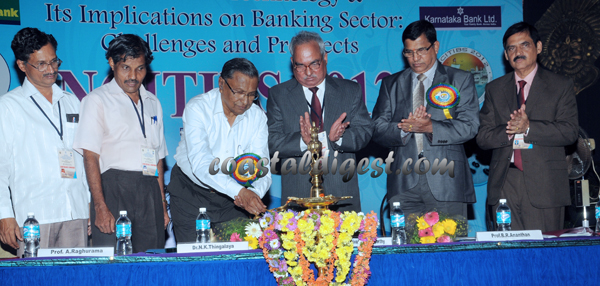
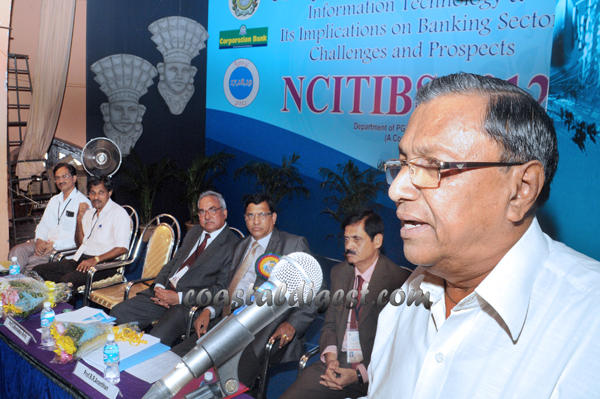
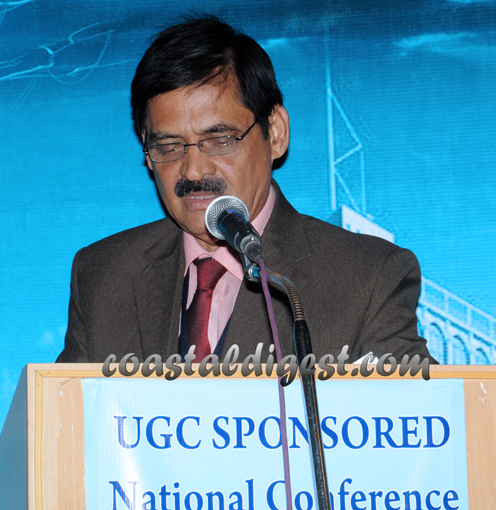
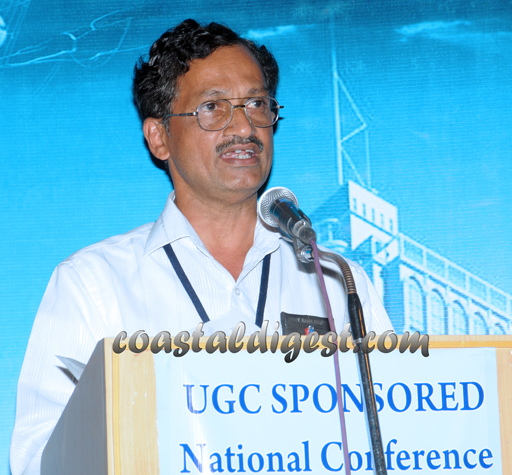
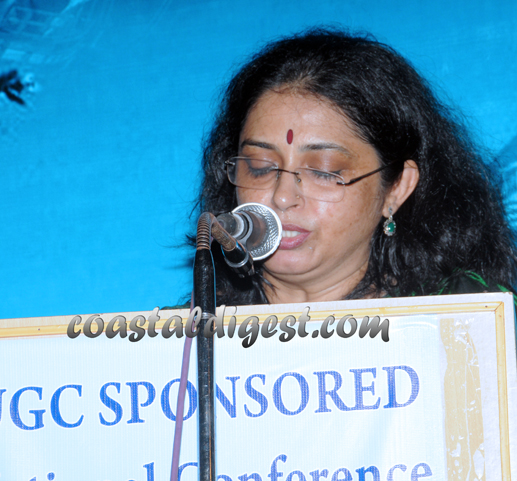
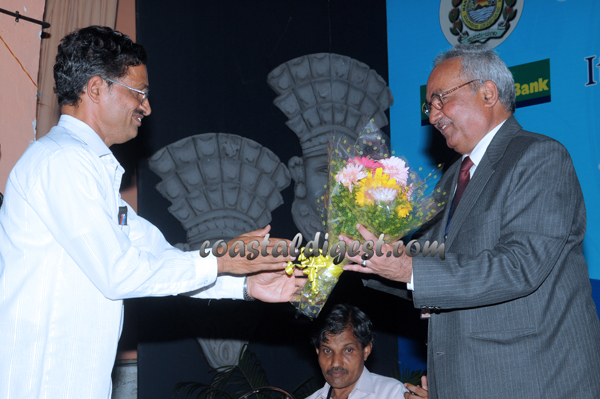
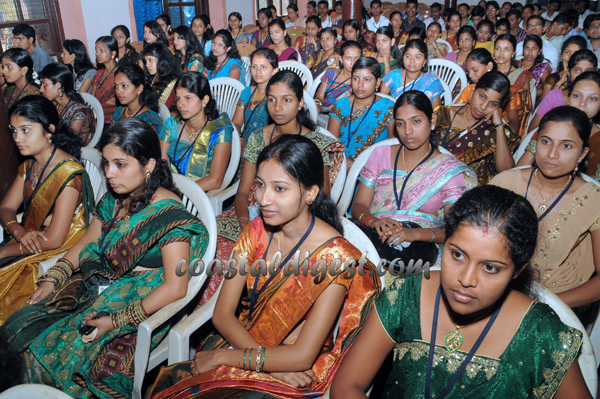
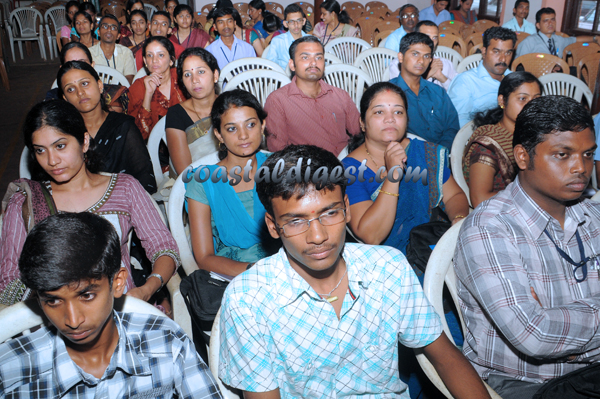
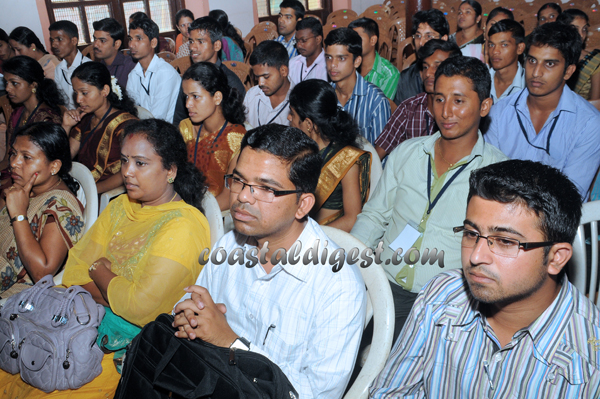
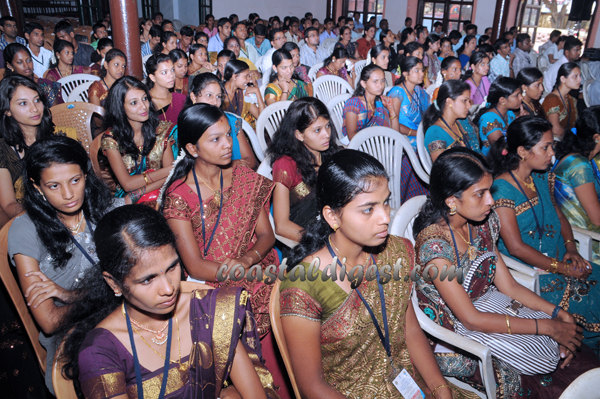







Comments
Add new comment